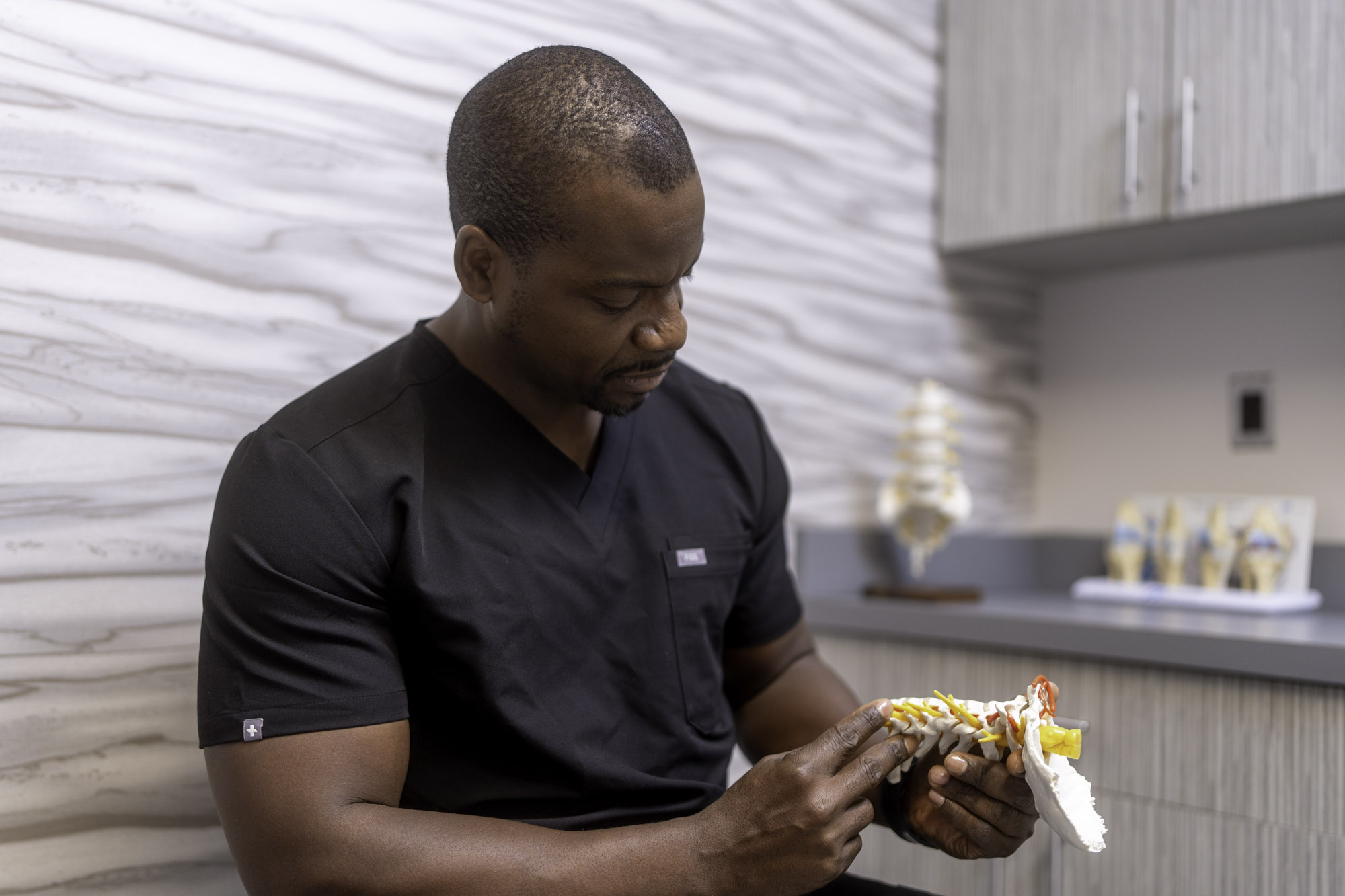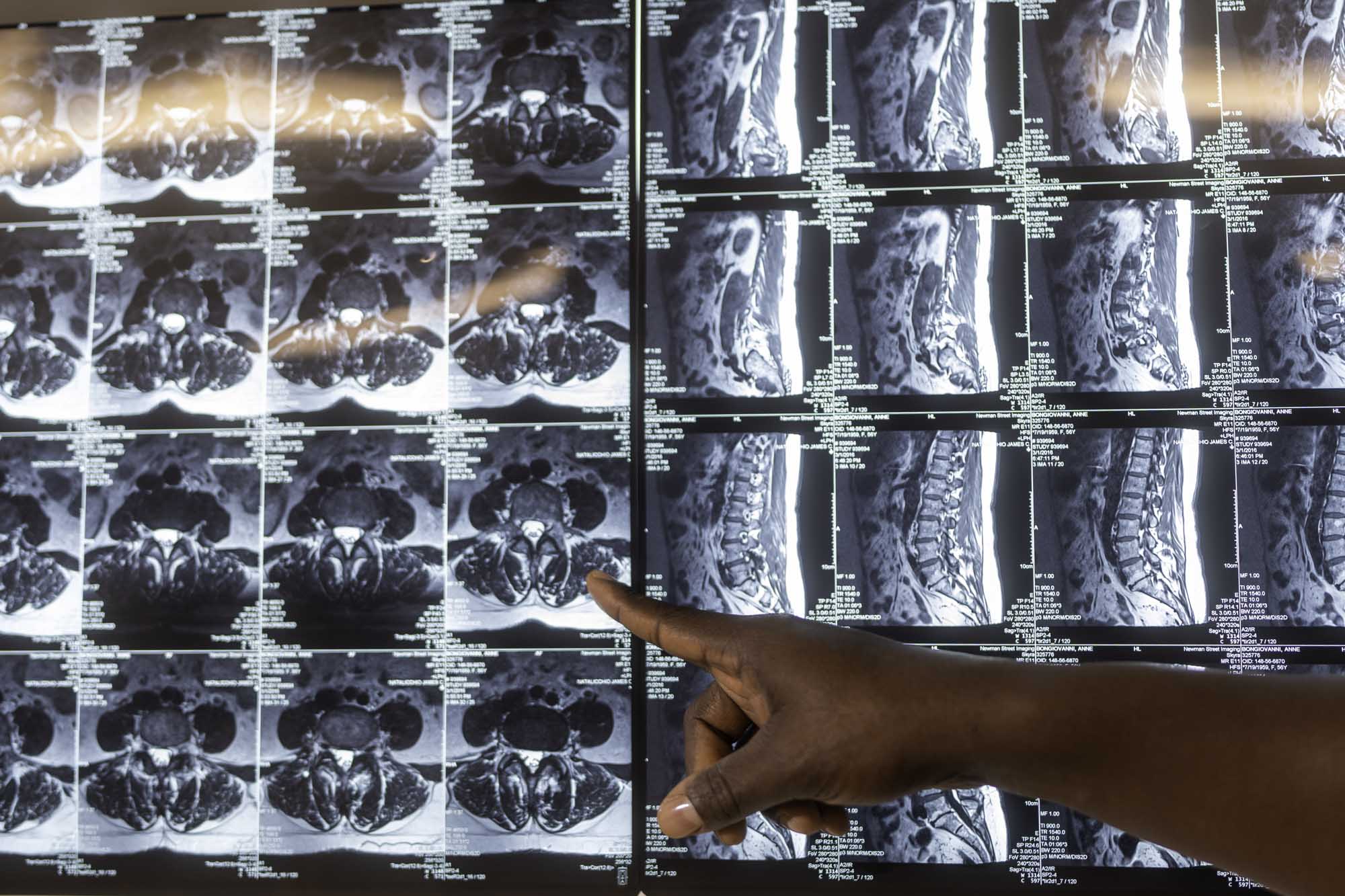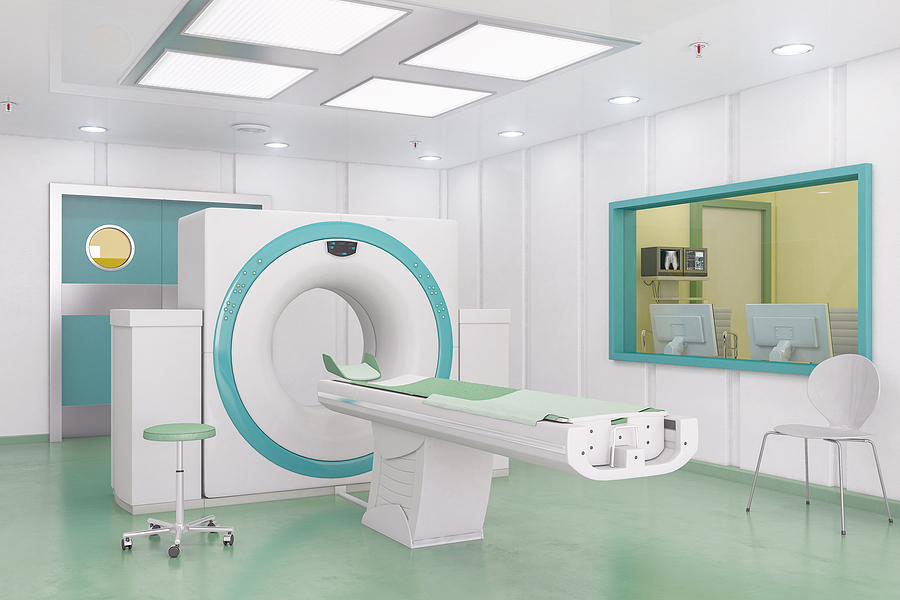Minimally Invasive Surgery in NJ & NY
At the Institute for Comprehensive Spine Care, we recognize the impact that the prospect of surgery can have on your life. Whether it’s the apprehension about the procedure itself or the anticipated recovery period, it can be overwhelming. Guided by renowned surgeon, Gbolahan Okubadejo, MD, FAAOS, we are dedicated to offering minimally invasive surgery and personalized care plans to alleviate your concerns and improve your health outcomes.







What is Minimally Invasive Surgery?
Minimally invasive surgery refers to a surgical approach that uses specialized techniques and instruments to perform procedures with smaller incisions compared to traditional open surgery. It aims to minimize trauma to surrounding tissues, reduce scarring, and promote faster recovery times.
In minimally invasive surgery, surgeons utilize advanced technology to visualize the surgical site and perform precise maneuvers. Through small incisions, instruments are inserted, allowing the surgeon to access the targeted area and perform the necessary surgical steps.
Common Minimally Invasive Surgeries
Lumbar Fusion: Minimally invasive lumbar fusion is a surgical technique used to treat spinal instability and lower back pain. This procedure involves fusing two or more vertebrae together using bone grafts or implants to stabilize the spine.
Artificial Disc Replacement: Artificial disc replacement, or disc arthroplasty, is a minimally invasive procedure used to treat degenerative disc disease. In this surgery, the damaged disc is removed and replaced with an artificial disc implant. This allows for the preservation of spinal motion and can help alleviate pain while maintaining flexibility in the spine.
Spinal Decompression: Minimally invasive spinal decompression procedures, such as laminectomy or foraminotomy, are performed to relieve pressure on the spinal cord or nerves in conditions like spinal stenosis or foraminal stenosis. These procedures involve removing a small portion of bone or tissue to create more space for the compressed nerves.

Is Minimally Invasive Surgery Right For You?
Patients with extensive or complex conditions, certain medical conditions that affect healing, or those who may not tolerate the procedure well may not be ideal candidates for minimally invasive surgery. Our specialists will carefully consider your specific circumstances and recommend the most appropriate treatment plan based on your individual needs.
Our Approach to
Minimally Invasive Surgery
Understanding that surgery can be a significant event in your life, we are committed to supporting you through every step of your journey. Along with expert diagnosis and treatment, you will receive continued guidance and education to help you manage your pre- and post-surgical experience effectively.
We will collaborate with you to formulate a tailored surgical plan that aligns with your specific needs and objectives. Dr. Bo and his team will be with you throughout the process to help you achieve your desired health goals.
Minimally Invasive Surgery
Patient Journey
Explore the steps to a pain free you.
Diagnosis
Schedule a consultation with Dr. Bo for a personalized assessment and treatment plan employing the latest diagnostic techniques.
Schedule a Consultation
Before Surgery
You will receive instructions to prepare for the operation that may include:
- Dietary Restrictions
- Medication Adjustments
- Preoperative Physical Therapy
Get Prepped
Day of Surgery
Expect to undergo pre-operative preparations, followed by the surgical procedure itself. The specifics will depend on the exact type of surgery.
Intervention
Recovery and Rehab
Post-surgery, you will be monitored in the facility. You will then continue your recovery at home while attending physical therapy and follow-up appointments.
Start Healing
Minimally Invasive Surgery
Patient Journey
Explore the steps to a pain free you.
Diagnosis
Schedule a consultation with Dr. Bo for a personalized assessment and treatment plan employing the latest diagnostic techniques.
Diagnosis
Schedule a Consultation
Before Surgery
You will receive instructions to prepare for the operation that may include:
- Dietary Restrictions
- Medication Adjustments
- Preoperative Physical Therapy
Before Surgery
Get prepped
Day of Surgery
Expect to undergo pre-operative preparations, followed by the surgical procedure itself. The specifics will depend on the exact type of surgery.
Day of Surgery
Intervention
Recovery and Rehab
Post-surgery, you will be monitored in the facility. You will then continue your recovery at home while attending physical therapy and follow-up appointments.
Recovery and Rehab
Start Healing
Advanced Diagnostics for
Minimally Invasive Surgery
Effective care begins with an Accurate Diagnosis.

Physical Exams
A physical examination allows Dr. Bo to assess your muscle strength, reflexes, and the severity of your spinal condition.

X-Rays
These provide clear images of the spine, assisting physicians in detecting issues such as spinal degeneration or deformities causing pain.

MRI/CT Scans
These scans offer detailed images of the back, enabling doctors to identify problems such as spinal stenosis and disc degeneration.
The Most Trusted Spine Surgeon in NY & NJ
Don't Just Take Our Word For It
Dr. Bo has over 500 5-star reviews.
Minimally Invasive Surgery FAQs
Answers to Common Questions. Click to Learn More
Minimally invasive surgery offers several advantages over traditional open surgery, including smaller incisions, less pain, shorter hospital stays, quicker recovery times, and less scarring.
Minimally invasive surgery is typically performed using specialized instruments and a camera that are inserted through small incisions. This approach allows the surgeon to view the surgical site on a monitor and perform the procedure without needing to make a large incision.
A wide range of procedures can be performed using minimally invasive techniques, including gallbladder removal, hernia repair, appendectomy, and some types of heart surgery.
The suitability of minimally invasive surgery depends on the specific condition and the patient's overall health.
As with any surgical procedure, minimally invasive surgery carries risks, including infection, bleeding, and possible injury to nearby organs. However, the risk is often lower than with traditional open surgery due to the smaller incisions and precise control offered by the minimally invasive techniques.
Not all conditions are suitable for minimally invasive surgery. The decision to use minimally invasive techniques depends on a variety of factors, including the nature and location of the condition, the patient's overall health, and the surgeon's expertise.
Recovery time from minimally invasive surgery varies depending on the specific procedure and the patient's overall health. However, recovery is often quicker than with traditional open surgery due to the smaller incisions and less invasive nature of the procedure.
Insights on Minimally Invasive Surgery
Explore Our Resources

















